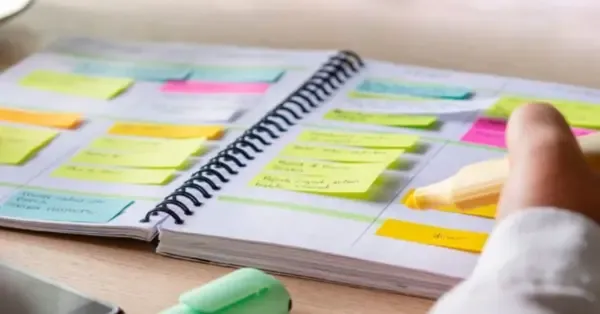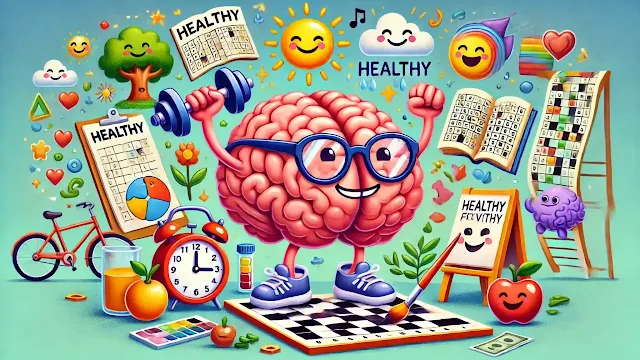Estimated Reading Time: 5 minutes
Best Study Strategies for Adult Learners: Unlock Your Full Potential
Adult learners face unique challenges when it comes to studying, often balancing education with work, family, and other responsibilities. However, with the right study strategies, adult learners can not only succeed but thrive in their academic pursuits. In this article, we'll explore effective study techniques, tips, and tools that are specifically designed to help adults achieve their learning goals.
Why Adult Learners Need a Different Approach to Studying
As an adult learner, your brain may not be as quick to absorb information as it once was. You may also have less time to devote to studying, which can make traditional study methods less effective. Unlike younger students who may have more flexible schedules and fewer distractions, adults often juggle multiple roles. This requires study strategies that are efficient, focused, and adaptable.
Key Challenges Faced by Adult Learners
- Time Constraints: Many adult learners have jobs, families, and other responsibilities that leave limited time for studying.
- Fatigue: Balancing multiple commitments can lead to exhaustion, affecting concentration and memory retention.
- Confidence Issues: Returning to school after years of being out of the academic environment can cause self-doubt.
- Technology Overload: With the rise of online learning, adults may struggle with using unfamiliar digital tools and platforms.
Despite these challenges, there are study techniques that can help adult learners optimize their time, improve focus, and retain information more effectively. Let’s take a deeper dive into some of the best strategies.
1. Create a Consistent Study Routine
One of the most powerful study strategies for adult learners is developing a consistent study schedule. With a busy life, creating a routine helps ensure that studying becomes a priority and not an afterthought.
How to Build a Study Routine:
- Set Specific Study Times: Whether it’s early mornings, late evenings, or during lunch breaks, find blocks of time that work best for you.
- Start Small: Begin with 30-minute study sessions and gradually increase the length as you build stamina.
- Stay Consistent: Try to study at the same time each day to create a habit. Consistency is key to success.
By sticking to a set routine, adult learners are more likely to stay disciplined and make steady progress toward their goals.
2. Use Active Learning Techniques
Active learning involves engaging directly with the material rather than passively reading or listening. For adult learners, this method boosts retention and helps you grasp complex concepts more easily.
Effective Active Learning Techniques:
- Teach What You Learn: Teaching a concept to someone else (or even to yourself) can reinforce your understanding. This strategy works well for adult learners who may be returning to academic studies after some time.
- Summarize Information: After reading a chapter, try summarizing the key points in your own words.
- Ask Questions: Pose questions about the material and try to answer them based on what you’ve learned.
- Practice Problem Solving: Engage in exercises or problems related to your subject to apply the concepts in real-life scenarios.
Using these techniques helps you to not just memorize information, but understand and apply it effectively.
3. Leverage Technology to Your Advantage
In today's digital age, technology can be a huge asset for adult learners. Using apps and tools for time management, note-taking, and organizing study materials can make studying more efficient and less overwhelming.
Must-Have Tools for Adult Learners:
- Note-Taking Apps: Tools like Evernote, OneNote, or Google Keep allow you to organize and access your notes from any device.
- Time Management Apps: Apps like Trello, Todoist, or Google Calendar can help you create study schedules and set reminders.
- Flashcard Apps: Anki and Quizlet are fantastic for memorizing key terms and concepts through spaced repetition.
- Online Study Groups: Platforms like Slack or Facebook Groups can connect you with fellow adult learners to exchange knowledge and support each other.
Integrating technology into your study routine can help streamline your learning process and keep you on track.
4. Break Large Tasks Into Smaller, Manageable Chunks
Adult learners often have limited time, so studying for hours on end may not always be feasible. Instead of tackling a large task all at once, break it down into smaller, manageable chunks. This technique, known as chunking, is highly effective for retaining information.
How to Use Chunking:
- Set Small Goals: Divide your study material into sections or topics and set goals for each session.
- Prioritize Tasks: Focus on the most important or hardest tasks first, and leave easier or less critical tasks for later.
- Celebrate Small Wins: Give yourself a pat on the back after completing each chunk. This keeps you motivated throughout the learning process.
Chunking not only makes studying less daunting but also helps you focus on one thing at a time, improving your retention and understanding of the material.
5. Use Mnemonics and Memory Aids
As an adult learner, you might need extra help remembering facts, formulas, or concepts. Mnemonics and other memory aids are excellent tools for making this process easier.
Popular Memory Aids:
- Acronyms: Create a word or phrase from the first letters of the items you need to remember.
- Visualization: Associate a concept with a visual image or mental picture to improve recall.
- Rhymes: Turning information into a catchy rhyme or song can make it easier to remember.
- Mind Maps: Create diagrams to visually organize your thoughts and show connections between ideas.
These memory techniques can be particularly helpful when you need to recall information quickly, such as for exams or presentations.
6. Utilize Active Breaks for Better Focus
Sitting for long periods can cause fatigue and hinder focus, which is why regular breaks are essential. Active breaks, where you move your body, can help recharge your energy and improve concentration.
Active Break Ideas:
- Stretching: Take a few minutes to stretch your body and relieve tension.
- Short Walks: Walk around the house, garden, or even outside to get some fresh air.
- Breathing Exercises: Take deep breaths to relax your mind and relieve stress.
Incorporating these breaks into your study routine not only helps with physical well-being but also improves your cognitive function.
7. Stay Organized and Minimize Distractions
Adults studying often juggle multiple tasks at once, so maintaining organization is crucial. A cluttered environment or distractions can easily derail your focus.
Tips for Staying Organized:
- Designate a Study Space: Find a quiet area to study where you can keep all your materials.
- Limit Distractions: Turn off notifications on your phone or computer to reduce interruptions.
- Use a Planner: Keep track of assignments, exams, and deadlines with a physical or digital planner.
By staying organized and minimizing distractions, you’ll be able to maximize your focus and productivity.
8. Maintain a Growth Mindset
Finally, cultivating a growth mindset is essential for adult learners. Instead of viewing challenges as obstacles, embrace them as opportunities for growth. Stay positive and understand that with effort and perseverance, you can overcome difficulties and achieve your learning goals.
Ways to Foster a Growth Mindset:
- Embrace Challenges: Don’t shy away from difficult tasks; tackle them head-on.
- Learn from Mistakes: View mistakes as part of the learning process and use them as stepping stones.
- Celebrate Progress: Recognize how far you’ve come, even if you haven’t reached your final goal yet.
A growth mindset encourages resilience, motivation, and a willingness to push through adversity.
Mastering Your Study Journey
Adult learners have unique strengths and challenges when it comes to education. By adopting the study strategies outlined in this article, you can effectively manage your time, improve your learning process, and enhance retention. Remember to stay consistent, use active learning techniques, leverage technology, and prioritize your well-being.
With the right approach and mindset, you’ll not only succeed academically but will be empowered to reach your educational goals.
FAQs
1. How can I create a study routine that works with my busy schedule? Creating a study routine as an adult learner requires setting specific study times that fit into your busy life. Whether it's early mornings, late evenings, or lunch breaks, find the time that works best for you. Start with shorter study sessions (e.g., 30 minutes) and gradually increase the length as you build consistency. The key is to stay disciplined and study at the same time each day to build a habit.
2. What is active learning, and how can it help me as an adult learner? Active learning involves engaging directly with the material rather than passively reading or listening. As an adult learner, active learning techniques such as teaching what you've learned, summarizing key points, asking questions, and practicing problem-solving can help improve retention and understanding. These methods encourage deeper engagement with the material, making it easier to grasp complex concepts and apply them effectively.
3. How can technology help me study more effectively? Technology can be a great asset for adult learners. Tools like note-taking apps (e.g., Evernote), time management apps (e.g., Trello, Google Calendar), and flashcard apps (e.g., Quizlet, Anki) can help you stay organized and track your progress. Additionally, online study groups and forums allow you to connect with other learners, exchange knowledge, and receive support. Integrating technology into your routine can make studying more efficient and less overwhelming.
4. What are some ways to stay focused and avoid distractions while studying? Staying focused is crucial for adult learners. To minimize distractions, designate a quiet study space and limit interruptions by turning off notifications on your phone or computer. Keeping a planner to track assignments and deadlines can help you stay organized and on top of your work. Taking regular breaks and using active breaks, such as stretching or short walks, can also help refresh your mind and improve focus.
Reference Source:
https://www.youtube.com/watch?v=YGNtOp1Ztgo
https://degrees.snu.edu/blog/essential-study-skills-for-adults-returning-to-school
https://pce.sandiego.edu/15-top-strategies-for-teaching-adult-learners-faqs/








